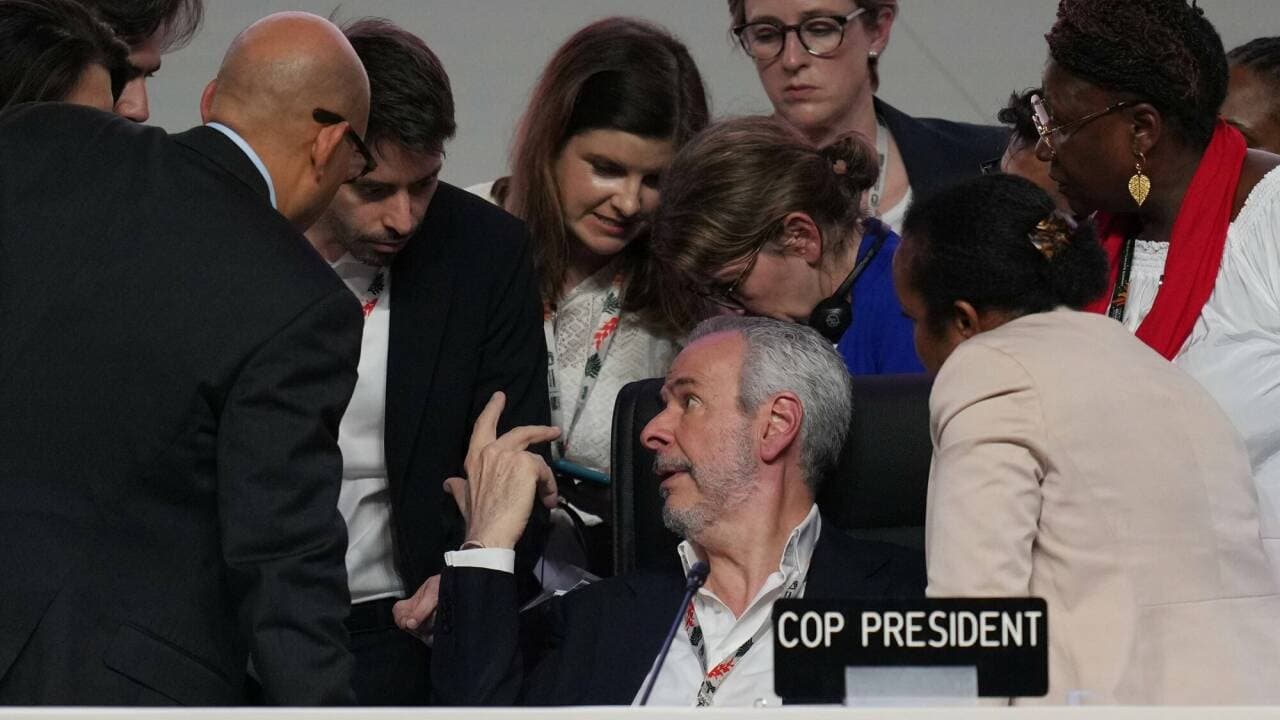The UN climate conference in Brazil ended on Saturday after tough negotiations and almost 20 hours of overtime, with rather weak compromises and no binding commitment to phasing out oil, coal, and gas. Instead, Brazil announced a voluntary roadmap for this transition. However, an objection from Colombia caused a break of more than an hour before the resolutions could be finally adopted.

Only then did COP President André Correa do Lago announce that the final text had been adopted. The agreement that wealthy nations will increase their climate aid to poorer countries for climate change adaptation could be seen as a success of these decisions. Specifically, a tripling of aid by 2035 is proposed. The text also includes measures for accelerated climate protection, as well as a review of trade barriers.
Uncertainty initially reigned at the conference venue following Colombia's objection. Before the interruption, Panama, Uruguay, and the European Union had all expressed their dissatisfaction with the text. However, unlike the other participants, Colombia insisted on its – retroactive – veto if the phase-out of fossil fuels was not included in the final text. The Colombian representative stated that the COP outcome could not and should not ignore science.
A breakthrough had been reported previously.
It was previously reported that the delegates had reached an agreement on a final text after difficult negotiations. This text includes measures for accelerated climate action, as well as a review of trade barriers and a tripling of financial aid for developing countries to help them cope with the consequences of climate change. The final plenary session, relevant for the vote, began somewhat late on Saturday afternoon (local time).
The Brazilian presidency wanted to address demands for greater climate protection following the meeting."We know that some of you had greater ambitions for some of the issues at hand," the conference president admitted.
The plan is to establish a side agreement on fossil fuels outside the regular agreement. The EU was prepared to agree to this, even though the word"fossils" is only mentioned indirectly. The draft decision does not actually contain the word"fossils"; it merely refers to a call made at the penultimate COP in Dubai. At that time, a"transition away from fossil fuels in energy systems" was called for.
The EU would have liked more – a “minimal compromise”
EU Climate Commissioner Wopke Hoekstra said the EU would have liked to see"more ambition" in the outcome of the conference. However, it will not oppose the final text planned by the Brazilian presidency. Diplomats from the EU circle spoke of"no satisfactory result." "It wasn't a step backward, it wasn't a step forward, but a step to the side," observers of the process told APA. The term"minimal compromise" was frequently used.
EU Parliamentarian Lena Schilling (Greens) saw it as"a step in the right direction," but no one could be satisfied."As long as the phase-out of coal, oil and gas is not unequivocally enshrined, we will fall short of what science demands and what people worldwide need."
Delegates deliberated late into the night on Saturday, attempting to reach an agreement on whether fossil fuels and their harmful effects on the climate should be mentioned in the document. EU Climate Commissioner Hoekstra had previously not ruled out the possibility of the conference ending without a final declaration, which would have been tantamount to a failure.
Adaptation financing will be tripled, according to Malawi.
The group of least developed countries (LDCs), however, reported a success:"We didn't win in all areas, but we achieved a tripling of adaptation financing by 2035," wrote Evans Njewa from Malawi, chairman of the 44-country group, on X. Adaptation financing refers to money that rich countries give to poorer ones to better cope with the consequences of global warming—such as droughts, storms, or forest fires.
Unanimity principle in plenary sessions
The principle of unanimity applies in plenary sessions. The EU coordinated this again this morning. Austria's Environment Minister Norbert Totschnig (ÖVP) had already left on Thursday due to prior commitments and is being represented by an official.
Meanwhile, the grounds of the UN Climate Change Conference in the Amazonian city have already been partially dismantled. The national pavilions, which had already been closed following the fire on Thursday, were being prepared for removal. Refrigerators with drinks and water dispensers were also temporarily missing, and some food stalls were already closed. However, on-site supplies remained available – unlike at other COPs during the extended conference.

